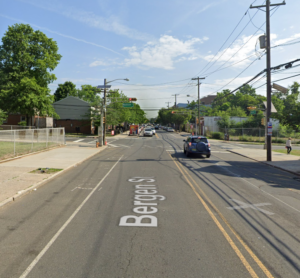
An office building elevator on Bergen Street in Newark, New Jersey, fell abruptly five floors, injuring an older man and causing him a traumatic brain injury (TBI). Davis, Saperstein & Salomon, P.C. Partner Steven Benvenisti filed suit in the Superior Court of New Jersey, Middlesex County, proving that the property owner and elevator company were negligent in their failure to properly maintain the elevator, winning our client a $750,000 settlement.
Our client was exiting his office on the eighth floor of the building, hoping to take a late lunch break. After he boarded the elevator, he pressed the button that would take him to the lobby. When the elevator door closed, he felt a sudden jerk as the elevator dropped, and then abruptly halted on the third floor. After reaching the third floor, the elevator began to move up and down in small motions. The client repeatedly pressed the “Open door” button, until the door opened enough for him to exit onto the third floor. The elevator was unleveled with the floor, causing the man to trip and fall as he exited.
The rapid elevator drop caused our client’s head, back, and feet to make contact with the elevator floor. The impact injured his neck and aggravated his pre-existing condition of multilevel cervical disc degeneration. He also suffered a concussion with Post-Concussive Syndrome, which would lead him to suffer mild cognitive deficits, vertigo, and severe headaches. In the aftermath of the accident, his health declined and he developed Post-Traumatic Stress Disorder (PTSD) and Generalized Anxiety Disorder (GAD).
The client pursued several types of medical treatment. He received two cervical injections to treat his neck and two steroid injections to treat his left foot. He underwent multiple courses of vestibular therapy for his balance, physical therapy, rehabilitation, and chiropractic sessions.
The firm hired medical experts to author narrative reports proving the permanent nature of our client’s injuries. Demonstrating the permanent nature of a client’s condition is critical for proving a client’s harms and losses.
Davis, Saperstein & Salomon, P.C. Partner Steven Benvenisti also hired an elevator consultant as an expert witness to determine the mechanical failure causing the elevator malfunction in this case. The consultant found that the elevator had shown erratic behavior for a long time before the accident occurred. The consultant also found that the elevator company hired to properly maintain the property’s elevators had been negligent in their failure to inspect, find, and repair the root cause of the erratic elevator behavior. The elevator company and the property owner employing the company were found negligent in this case.
Settlements are often limited by the total available insurance coverage. Insurance company adjusters and their lawyers often defend cases by claiming that a client was negligent and could have avoided being injured by arguing comparative negligence on the part of an injured client; or that their pain and suffering was caused by pre-existing medical conditions or prior injuries. Despite those defenses, the Davis, Saperstein & Salomon, PC lawyers won their client’s injury claim. Each client’s case is unique. Results may differ because of different facts, circumstances, and available insurance coverage.
Call us now for a free and confidential case evaluation. We are also available 24/7 online at our website, www.dsslaw.com.
Medical Glossary
Disc herniation: Occurs when the exterior of a disc cracks and its nucleus pushes into the spinal canal and irritates surrounding nerves.
Visual-Vestibular Integration Dysfunction: Occurs when the brain cannot process and synthesize information being transmitted from the visual and vestibular systems.
Vertigo: The feeling of spinning even when an individual is still.
Post-concussive syndrome: Occurs when the symptoms of a concussion last longer than the expected amount of time.
Vestibular therapy: A subtype of physical therapy, used to mitigate issues like vertigo and dizziness.











